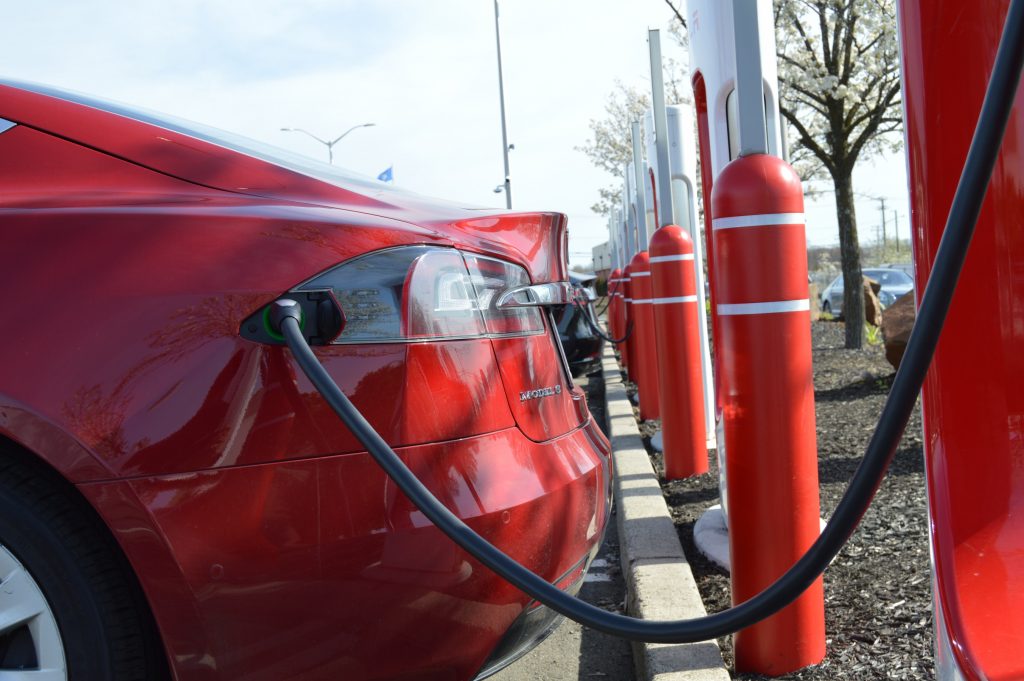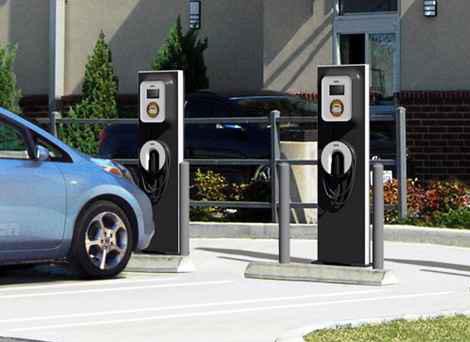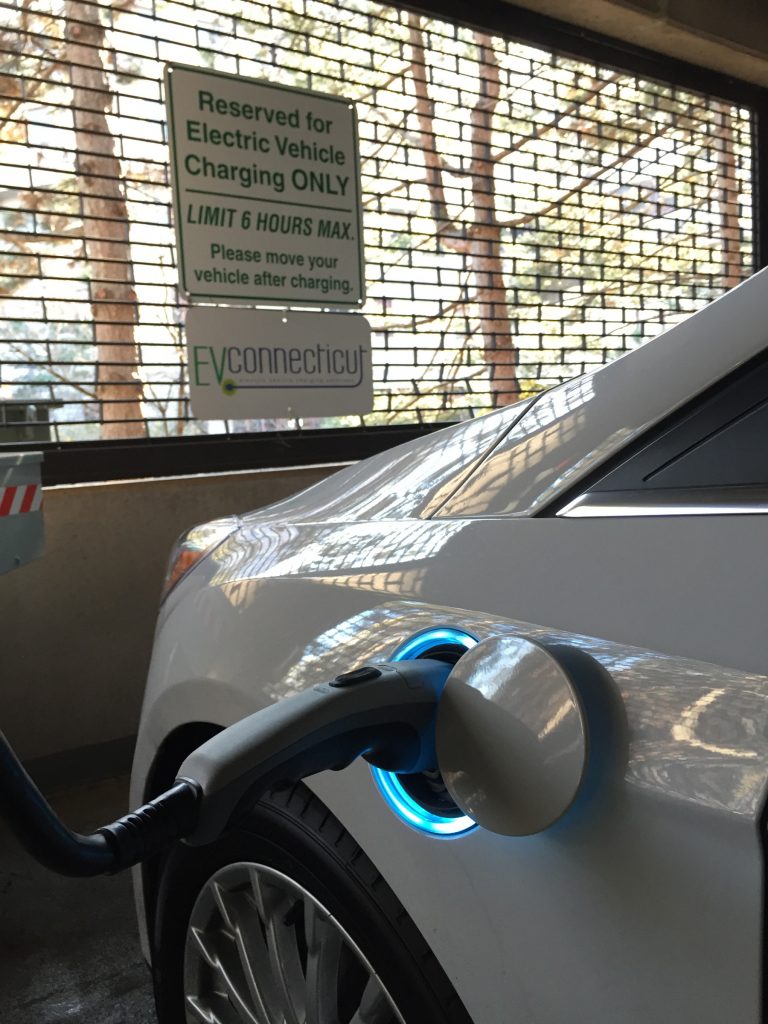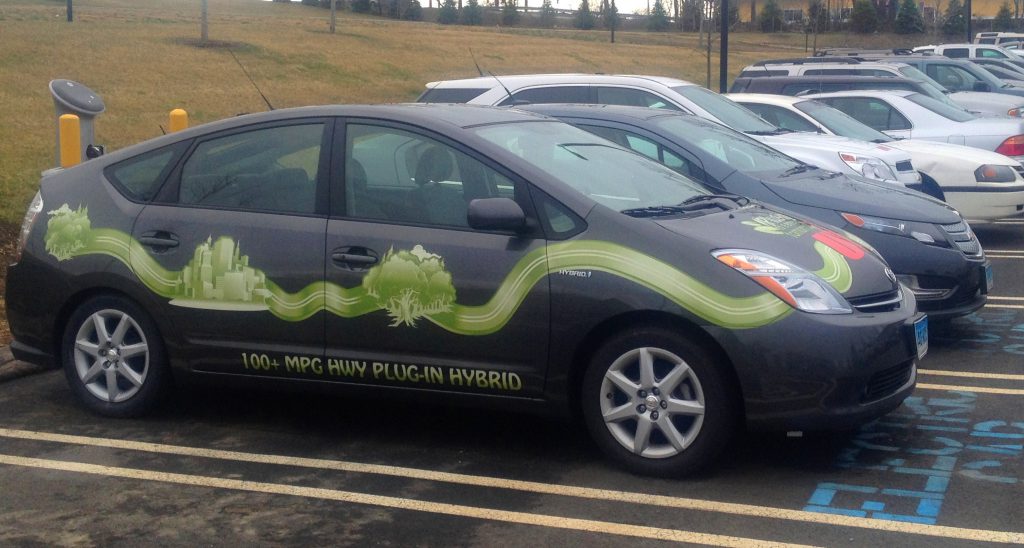Carbon dioxide and carbon monoxide. Sulfur dioxide. Particulate matter.
These are just a few of the pollutants that spew from car tailpipes, hurting our health and worsening climate change. Vehicles are Connecticut’s biggest source of greenhouse gas emissions, and New York’s second-biggest.
Right now, Connecticut residents have an opportunity to help combat this.
Click here to take action for Clean Vehicles
The Connecticut Department of Energy and Environmental Protection (DEEP) has released regulations that will strengthen air quality standards for cars and trucks and build on Connecticut’s legacy as a clean car leader.

The Advanced Clean Cars II (ACC II) regulation requires vehicle manufacturers to provide an increasing percentage of new zero-emission light-duty vehicles to dealerships starting in 2026, reaching 100% by 2035, and provide incentives for manufacturers to lower the cost of electric vehicles while providing enhanced consumer protections. The Low Emission Vehicle IV (LEV IV) regulations reduce pollution from conventional vehicles during this period of transition. The Advanced Clean Truck (ACT) rule will gradually increase the supply of zero-emission trucks and buses, while the Heavy Duty Omnibus (HDO) standards will ensure that diesel vehicles sold during the transition period are as clean as possible.
These regulations will provide crucial public health, environmental, and economic benefits for Connecticut residents. They will save lives, especially in our most vulnerable populations. A study conducted by environmental analysts EBP last year found that Connecticut’s adoption of these standards will decrease GHG emissions by 137 million metric tons, and air pollutants that directly harm human health by 154,000 metric tons.
New York has already approved these standards, as have Massachusetts, Rhode Island, Vermont, New Jersey, California, and a growing number of other states.
In Connecticut, there’s one more step: they need to be approved by the Regulations Review Committee, part of the state legislature. Fossil fuel interests are doing everything they can to keep that from happening, including putting out misleading information.
You can help legislators stand up to regressive forces by showing them that people across Connecticut, including their constituents, support clean vehicle regulations. We’ve created a form that makes it easy for you to tell the Regulations Review Committee and your own state senator and representative that Clean Vehicle policies are critical to public health and quality of life. Click here to send your message.
According to DEEP, medium and heavy-duty trucks “account for as much as 53% of nitrogen oxide emissions, despite being only 6% of the on-road vehicle fleet.” This is especially damaging to communities living near busy roadways. Breathing in emissions can cause public health problems such as asthma, emphysema, or other pulmonary issues. The concentration of these roadways in cities also makes vehicle emissions an environmental justice issue. According to a Connecticut Health Foundation study in 2020, black children are five time more likely to visit an emergency room for asthma as white children.
If passed, Connecticut will join ten other states that have adopted California’s clean vehicle standards. Those states, plus others in the process of adopting, will represent 40% of new vehicle sales, sending a market signal that makes cleaner vehicles the norm. Already, most car manufacturers have announced significant electrification goals in the coming decade, and Connecticut continues to build out charging infrastructure—check out our blog post on the electric grid for more.
A recent analysis found it’s already less expensive to own and operate an EV than a similar gasoline model. For example, the Ford F-150 Lightning pick-up truck will be 17% cheaper to own than the gas-powered F-150, even though its initial sticker price is higher. Under the new standards, we expect to see continued growth of new ZEV and Plug-In Hybrid Electric Vehicle (PHEV) models, increasing affordable consumer options for clean vehicles in the marketplace even more.
More ways to take action
Call a committee member: Look at the legislators on the Regulations Review Committee. If your state senator or representative is among them, you have a lot of influence! Please call their office (you can find a link to each legislator’s website and contact info on the committee page) and make it clear you’re a constituent and you support Clean Vehicle standards.
Join a webinar: Our partner Interreligious Eco-Justice Network is hosting a webinar on the proposed Clean Cars and Clean Trucks standards and their significant public health and air quality benefits. The webinar, featuring panelists including Save the Sound’s climate and energy attorney Charles Rothenberger, will be Monday, October 30 from 7:00 to 8:30 p.m. Come learn more about what the regulations do, the process so far, and how you can help. Register here.




